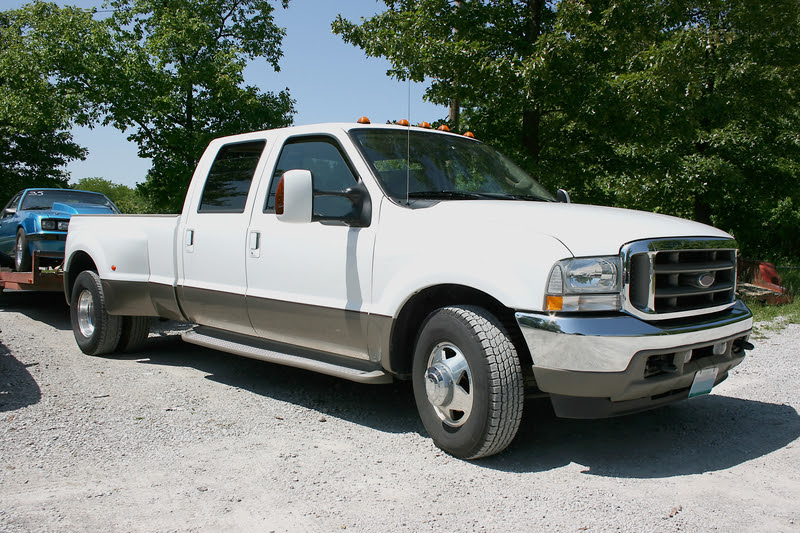Hotshot Trucking Insurance|Affordable Commercial Truck Coverage
CIS specializes in finding you the Best Hot Shot Insurance for Your Dually, Trailer and Commercial Cargo.
What kind of Commercial Truck Insurance do I need as a Hot Shot Freight Hauler?
Hot Shot Insurance is all about Commercial Coverage, not Personal.
If you’re driving a Hot Shot Dually and hauling freight for hire, you’ll need a USDOT number from FMCSA and at least $750,000 in Commercial Auto Liability to stay legal.
That said, most Hot Shots go with $1 million in coverage because that’s become the industry standard in order to bid on loads.
As for cargo coverage, the FMCSA doesn’t require it, but if you want to score the best loads, you’ll usually need $100,000 in Motor Truck Cargo coverage, and sometimes even more—think $150,000 to $250,000.
What can I haul as a Hot Shot?
As a Hot Shot, you can haul all kinds of loads.
Some Hot Shots use flatbed trailers to haul things like machinery, farm equipment, construction materials, or even air-conditioning units.
Others focus on towing cars and “toys” like motorcycles, boats, golf carts, RVs, or trailers.
With a Dually Pickup truck and Gooseneck Trailer, you’ve got options—use a 3 to 4 car wedge to move multiple cars or go for an enclosed trailer if you want to keep the cargo extra safe.
Hot Shots have tons of ways to make money hauling freight!
What is the difference between a Hot Shot and an Expediter?
Both Hot Shots and Expediters are Trucking for Hire operations of a time sensitive nature.
Both tend to operate between 300 and up to unlimited miles.
Many do not go home the same day they deliver the freight, and others are on the road for weeks at a time.
An Expediter can operate with a cargo van, sprinter, step van, straight truck or tractor trailer.
A Hot Shot usually runs with a one-ton dually and needs commercial truck and trailer insurance to hit the road.
Both Hot Shots and Expediters need Commercial Truck Insurance vs Personal Auto Insurance.
Both carry their own Commercial Cargo Insurance, or Motor Truck Cargo as well.
Read more about the difference between hotshot and expediter insurance here.
Hot Shot Trucking Insurance FAQ
GEICO commercial trucking insurance is currently the best option for most lines of independent contractor trucking. They’re open-minded about what they cover, offer broad coverage, and their premiums are more affordable than the competition.
Actually, they’ve got a new program just for Hot Shot Trucking Insurance.
Want to know why GEICO really stands out?
Read our post on Why GEICO is the Best Choice for Hot Shot Truck Insurance.
Premiums vary WIDELY from state to state.
Obvious factors like the following come into play.
- driving record
- value of your unit
- radius of operation
- and yes, credit
Read our list of 10 tips to reduce your premiums.
Your best bet is to take 5 minutes and call us.
Grab your driver’s license and VIN number, and you’ll get a quick Commercial Truck Insurance quote for your Dually in just a few minutes.
After hours? You can start your quote below, and get a call back first thing in the morning.
GEICO is currently giving Progressive a run for their money on Hot Shot insurance.
The ladies at CIS love to chat, and we’ve got plenty of free Hot Shot advice to help get you off to a strong start.
Blog
Affordable West Virginia Trucking Insurance with GEICO
West Virginia Truckers and Hot Shots can get quick and affordable GEICO Commercial Truck Insurance Online Quotes w/ 5-Star CIS–From Cargo Vans to Big Rigs (330) 864-1511 #CISDoesThat
GEICO Trucking Insurance for Utah Motor Carriers
Motor Carriers in Utah can get affordable GEICO Commercial Truck Insurance Quotes Online w/ 5-Star CIS + free cheat sheet to help you get started with your new DOT. From Commercial Vans to Hot Shots to Big Rigs (330) 864-1511 #CISDoesThat
New Mexico Motor Carrier GEICO Quotes Online
Hey New Mexico truckers! Need affordable insurance? With 5-Star CIS and GEICO, we’ve got you covered—whether you’re driving a van, box truck, or big rig. We’ll match you with the best-priced insurance for whatever you haul. Plus, grab our free DOT startup cheat sheet! Give us a call at (330) 864-1511 and see why #CISDoesThat.

